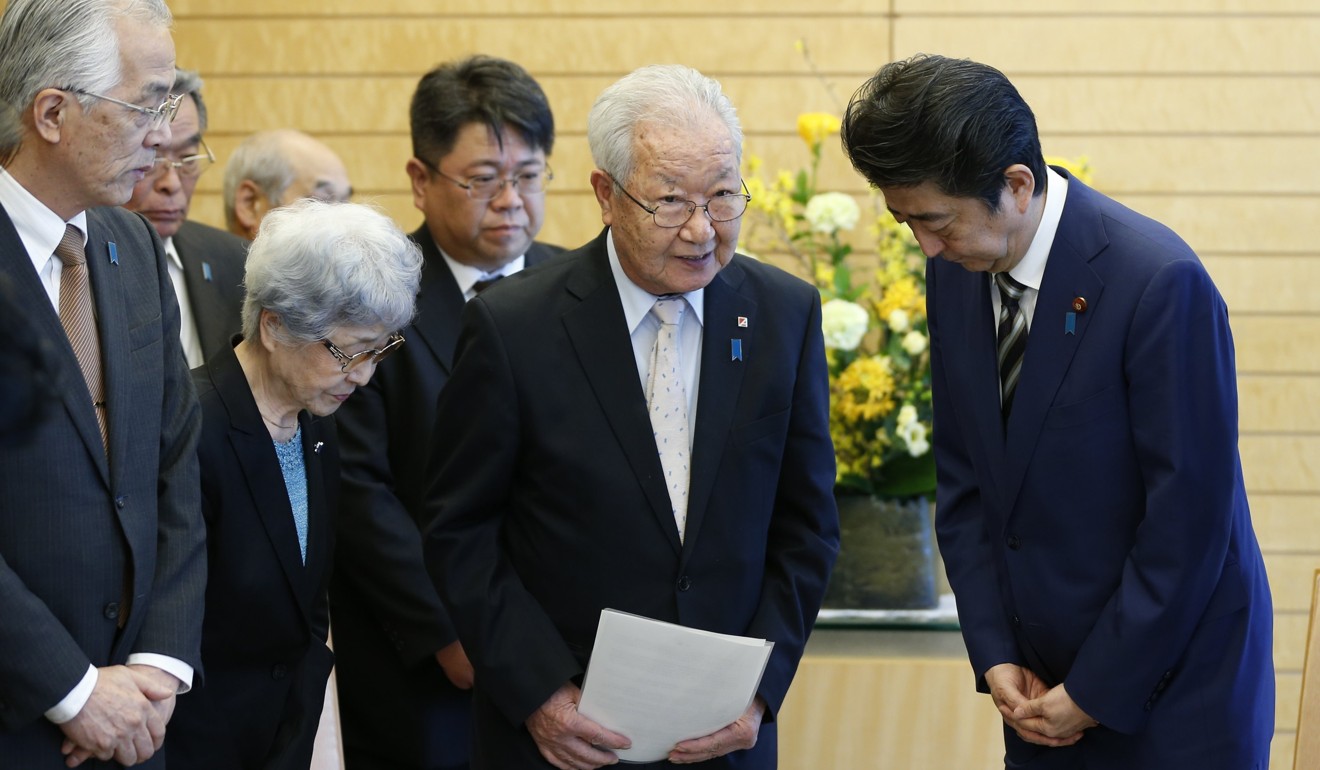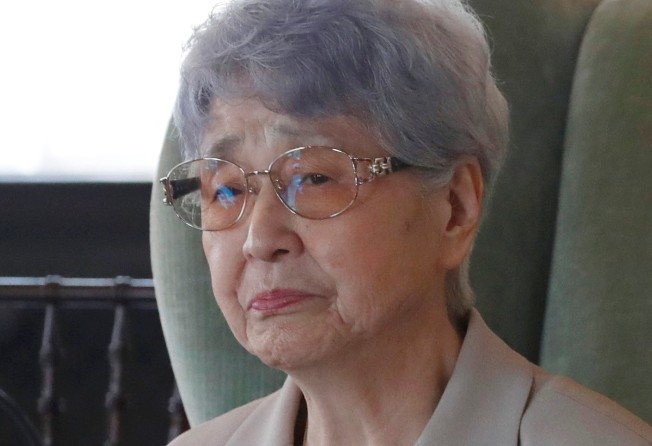
What will happen to the Japanese abducted by North Korea in the 1970s, and why does it matter?
After years of denial, the North admitted in 2002 it had taken civilians, and now Donald Trump says he is going to try get them back

The recent whirlwind of diplomacy over North Korea has sparked hopes in Japan of a breakthrough in the painful decades-long issue of citizens kidnapped by Pyongyang.
US President Donald Trump pledged after a meeting with Japanese Prime Minister Shinzo Abe to work “very, very hard” to “try and bring these folks back.”
Trump also met relatives of the abductees during his last visit to Tokyo, the emotional high point of his trip as grieving families clutched pictures of their loved-ones.
Here is what you need to know about the issue that has dogged ties between Japan and North Korea for years.
In the 1970s and 80s a number of young Japanese disappeared from areas abutting the Japan Sea.
Tokyo pointed the finger at Pyongyang, saying North Korean agents had kidnapped them to train its spies in Japanese language and customs.
After years of denial, North Korea admitted in 2002 it had taken 13 Japanese civilians. Tokyo believes the number to be at least 17.
A month later, five were allowed to return to Japan. Pyongyang insisted the other eight were dead but has not produced evidence that Japan accepts.
One of those said to have died was Megumi Yokota, kidnapped on her way home from school in 1977 at the age of 13 – the youngest among the 17 officially listed as abductees by the Japanese government.
In 2004 North Korea handed over cremated remains it claimed were Yokota’s. However, Tokyo said DNA tests conducted in Japan proved the claim to be untrue.
There are strong suspicions in Japan that the North also snatched dozens of others.
Japanese police say there are 800 missing people for whom the possibility of being kidnapped by the hermit state cannot be ruled out.

Yokota’s ageing parents have been at the forefront of a long and emotional campaign to keep the subject in the national consciousness.
Their dignity and persistence continues to strike a chord among the public.
The issue, which is never far from the domestic news agenda, has coloured Japan’s attitude to its neighbour for years and Abe rarely passes up an opportunity to raise it.
While Japan is at the sharp end of North Korean aggression and has seen missiles flying over its territory, it is the abduction issue that really rankles.
“I think it would be a tremendous signal if Kim Jong-Un would send them back,” Trump said during his Tokyo visit in November, when tensions were at fever-pitch.
Far from it. A 2014 UN report on human rights in North Korea estimated that 200,000 people from other countries have been snatched over the decades.
It is highly unlikely we will see an immediate return of the abductees even if President Trump raises the issue during his summit with Kim
Most of them were South Koreans left stranded after the 1950-1953 Korean war, but hundreds of others from around the world – including women from Lebanon, Thailand, Malaysia, Singapore, Romania and France – were taken or disappeared while visiting the country between the 1960s and 1980s, the report said.
More recently, the North abducted a number of its own nationals and South Koreans from China, the UN said.
Experts think probably not – at least, not in the short term – and this is not the first time a US president has made efforts to resolve the issue.
Yokota’s parents met Barack Obama in 2014 when he visited Japan.
Under an agreement brokered in Stockholm in May 2014, North Korea undertook to reinvestigate all abductions of Japanese citizens in what appeared to be a significant breakthrough on the issue.
But there has been almost no progress since then, as relations between the North and the international community deteriorated.
“It is highly unlikely we will see an immediate return of the abductees even if President Trump raises the issue during his summit with Kim,” said Satoru Miyamoto, expert on the North Korean issue at Seigakuin University.
“No progress has been made since former prime minister [Junichiro] Koizumi visited North Korea and the North has long said no Japanese nationals were alive,” Miyamoto told AFP.
“It’s hard to think that the issue will be dramatically resolved after the summit,” he added.